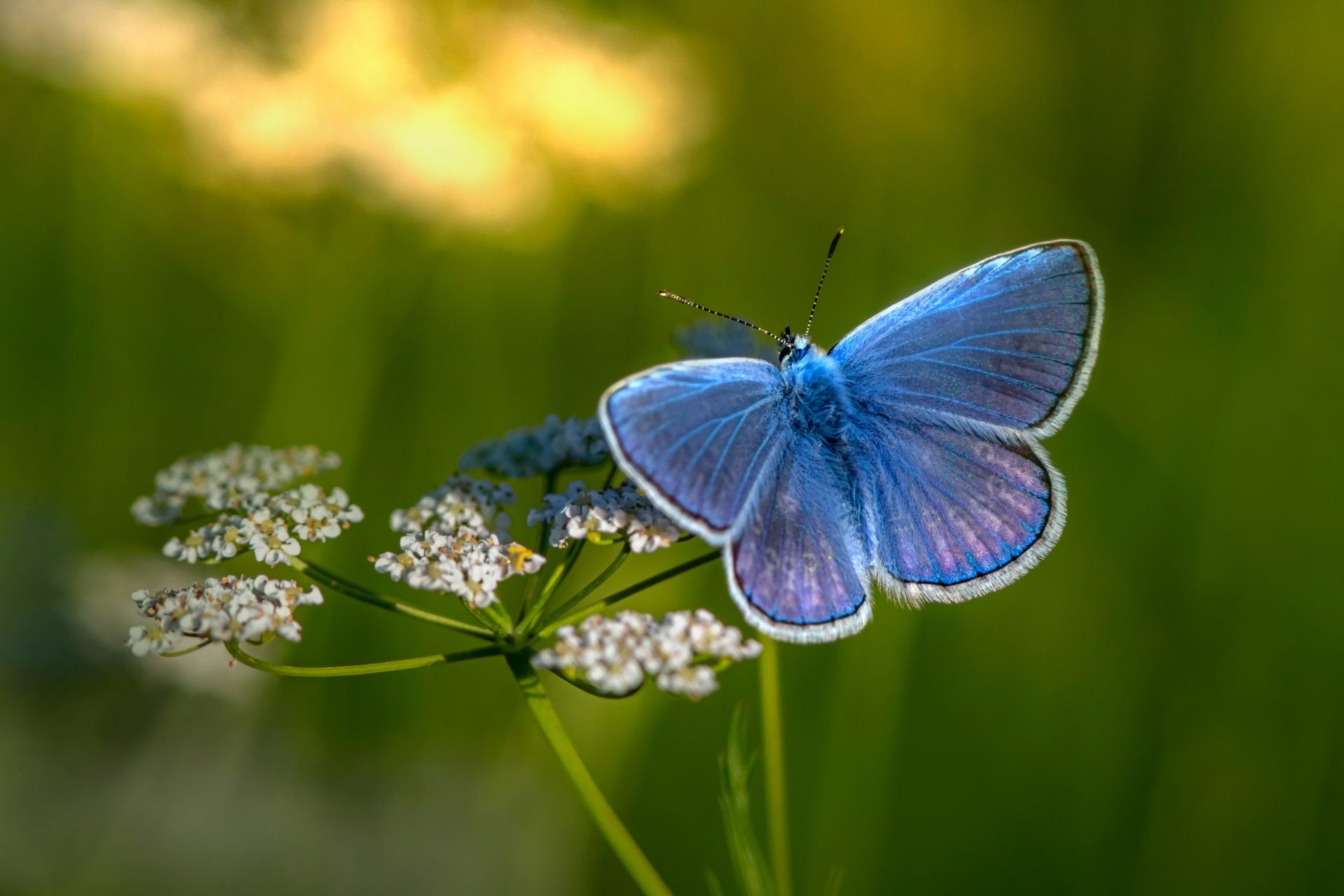The Butterflyeffect
The term butterfly effect was invented by the American mathematician and meteorologist Edward N. Lorenz. He recognized in the 1970s that small changes in air turbulence can have large consequences on weather throughout the world. Lorenz posited the following thesis in 1963: In a space where anything is possible, it is also possible that the flap of a butterfly's wings thousands of miles away can lead to an environmental disaster. Can the wing beat of a butterfly in Brazil cause a tornado in Texas?
The space with which Lorenz was concerned was the entire weather system of our planet Earth. At first he was ridiculed by his colleagues for this, but then the phenomenon of the Butterfly Effect quickly conquered all chaos theory that dealt with dynamic systems. I wonder what the consequence of the consequence of my actions actually is. How determines the word I say or each action I perform the further course of an evolving world?
The butterfly effect makes us understand that every coincidental event, no matter how small, has an effect on the big picture. And we become aware of how unpredictable this random butterfly effect can really be.

Butterfly-flappings in Human History
In 1859, the Battle of Solferino took place, here the Italians fought the French, leaving hundreds injured on the battlefield after the slaughter. A man named Henry Dunant took the initiative, summoned the inhabitants of the nearby town of Castiglione and together they began to provide medical care to the wounded as best they could. He described his experiences during this mission in his subsequent book and it became a plea to all people in the world. He requested medical care for those who were wounded during times of war. The butterfly Dunant performed this one wing beat and a groundbreaking change in the world was to follow. For his voice was heard. In February 1863, the International Committee of the Red Cross (ICRC) was founded. Henry Dunant received the first-ever Nobel Peace Prize in 1901.
It was December 1st, 1955 in Montgomery, Alabama, USA. Rosa Parks took the bus home from work as usual. She sat down in a seat reserved exclusively for white passengers. When the bus driver asked her to leave the seat, she refused. The jail sentence she received for this lasted only a few days, but protests developed as a result of this very incident, which would last for an entire year and eventually lead to a society-changing decision by the U.S. Supreme Court. On November 13th, 1956, it was decided that all people should be free to choose the seat they want to take. The flap of that butterfly's wings had changed the long struggle against discrimination worldwide. And Rosa Parks, who has since been nicknamed the "Mother of the Civil Rights Movement," worked for equal rights for black and white people throughout her life.
1935 to the present day. The butterfly effect of the Dalai Lama describes itself as if by itself, if we observe the now 87-year-old - and his entire life retrospectively until today - in his actions. His fate was already sealed when he was appointed the 14th Dalai Lama at the age of four. This is a position that makes him the religious leader of the Buddhists in Tibet. At the age of 16, a year after Chinese soldiers invaded Tibet, he was also appointed King of Tibet. However hard he tried, he failed to make peace with China. He fled to India and has been traveling the world from there ever since. He always encourages people to be happy and to never give up. He also campaigns for a world without nuclear weapons and is currently a member of the advisory board of the Nuclear Age Peace Foundation. However, his to me most outstanding quality is his vision that all people of different religions can live well together. He does not force his own faith on anyone, because he is convinced that every religion can also bring about its own good.
Nelson Mandela received the Nobel Peace Prize in 1993. Before that, he was confined to a prison cell for 27 years because of his fight for human rights. However, Nelson Mandela never had a sense of anger and, while in prison, gave numerous speeches about compassion and human dignity to his guards and fellow inmates. He even publicly forgave those who were responsible for his imprisonment. His butterfly flaps were his unceasing commitment to equal rights for all people and his everlasting sense of peace. He was the first democratically elected president of South Africa and remains an inspirational figure on the path to all-embracing and unconditional love to this day.
DYFH - Your individual wingbeat
2023. As participant of the DYFH Challenge YOU begin to move beyond the understanding, that with every thought you have, with every word you say and with every action you take, you have an influence on the further development of the world. In fact, you begin to notice this influence and become a butterfly yourself. You become the owner of the world that you create.
You are not in this world. The worlds in you.